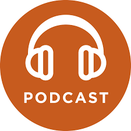THE INSPIRED
|
By John Clements, Principal, Nipmuc Regional High School
Where do you go when you want to push your thinking? Do you have a reliable resource that can challenge the way you frame your ideas? If not... welcome to Akimbo. Akimbo is a podcast from Seth Godin - an entrepreneur, author, and thinker whose ideas sprawl across a range of topics from marketing and business to leadership and education.
Godin describes Akimbo as a podcast "about our culture and about how we can change it. About seeing what's happening and choosing to do something." Sound familiar? That mission resonates with an ever-growing audience of educators who spend each day in a similar headspace, reflecting on past practice and creating actionable solutions to build schools that inspire. Any of the Akimbo episodes are worth a listen. They are brief, tightly organized, and thought-provoking. Beyond that, they're told with simplicity, honesty, and closeness that makes the content feel more like a conversation than a lecture. The episode I've featured here makes a case for doing the work - simply, persistently, and purposefully doing the work necessary to make an impact. It's worth a full listen; however for the sake of this blog post, I focused only on the Q &A section at the end of the episode. Each week Godin takes questions from the audience about the previous week's episode. In this Q & A wrap-up, one listener asks the question, "What is school for?" Using the embedded podcast above, feel free to scan ahead to the 20-minute mark of the episode or read the transcript below. Let Akimbo push your thinking with the question, "What is school for? "
Read the excerpt from Akimbo below and see how you would answer the question, "What is school for?".
Q: “How might a large organization like a public school district scale up efforts to make the system fit its students.” A: Yeah, this is a great question and the idea is how do we use the bureaucracy we've got now - the efficient powerful bureaucracy - to make school what it needs to be, which is personalized and individualized education about leadership about making change happen. Well, I think if we think about it a little differently you'll see the problem. Let's say you ran a really efficient division of the army - the division of the army that shaves the heads of all the people on their way into boot camp. That on a good day you can shorn 400 people, no problem. Well, that's super efficient, and I understand how you would organize a squadron of barbers to end up with 400 haircuts done in no time. However, if you're going to take that approach and try to build a chain of beauty parlors and hair salons, you're going to fail. And the reason you're going to fail is not because you're bad at shaving the heads of 20 year olds. The reason you're going to fail is that's not what the public needs or wants from you. And so the wrong answer would be “Here’s how you take this squadron you’ve got that was good at the old job and turn them into people who are good at the new job.” The right answer would be “What's the new job? Let's build something around that.” So the challenge of adjusting the bureaucracy of school is there can be no effortless, easy, top-down solution to this problem. That the problem is going to be solved the different way. It’s going to be solved by parents asking a simple question, “What is school for?” And if we can be clear with each other about “what is school for?”, we will no longer tolerate wasting time and money doing things that school isn't for. And organically - with a lot of dislocation and pain and suffering and discomfort, but yes organically, day-by-day, classroom-by-classroom, student-by-student, the school system will begin to change. But it will only begin to happen when we ask the question, “What is school for?”
Add your answer in the comments below. "What is school for?"
By Mary Anne Moran, Associate Principal, Nipmuc Regional High School
Some educators naturally feel a sense of urgency about the need to reimagine our schools as the model of our current schools which was created over a hundred years ago is no longer serving the needs of our students in these incredible times of change. It is our responsibility to prepare students for a world that we cannot predict. Despite not having all the answers and not knowing what the road ahead looks like, those of us that feel the urgency, charge ahead into the unknown seeking possible solutions, reimagining our work, and failing forward. We also know that there are others that don’t feel this same sense of urgency. These educators continue to teach the same lessons, adhere to the same curriculum, and offer the same assessments. If we all know that the world outside of our schools is changing, how to we work together, with urgency, to reimagine learning for our students? The Importance of Urgency
|
|
|
Please share your thoughts below about where your own sense of urgency comes from in regards to reimagining school.
Pursuing a culture of inspired learning rather than a culture of teaching requires taking a clear-eyed look at past practices. More and more, educators are responding to the call to action to rethink past practice and reimagine our schools. In this week's resource post, we're sharing an article and a TED Talk that challenge educators to evolve their professional work to meet the needs of students. Both pieces highlight the aspirational parts of being educator and the great potential of modern learning. Check out the article and the video and feel free to add your comments below.
Why School Sucks
|
The Surprising Truth about Learning in Schools
by Will Richardson
Educator Will Richardson provides a thought-provoking TED Talk that contrasts our practices as educators with what we believe about learning. Richardson is an author and educational thought leader; he also is one of the leaders of Change.School, an eight-week online learning experience for educators who are interested in leading schools that embrace modern learning. Learn more about the program here.
Click above to share a practice that promotes student agency, ignites students' passions, or creates a bridge between classrooms & the real world.
Click above to nominate an educator to be celebrated by the Inspired Learning Project.
Archives
November 2020
February 2020
January 2020
December 2019
November 2019
October 2019
September 2019
July 2019
June 2019
May 2019
April 2019
March 2019
February 2019
January 2019
December 2018
November 2018
October 2018
September 2018
May 2018
April 2018
February 2018
January 2018
December 2017
November 2017
October 2017



 RSS Feed
RSS Feed